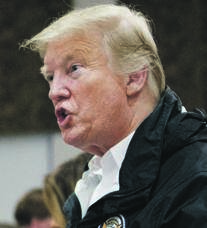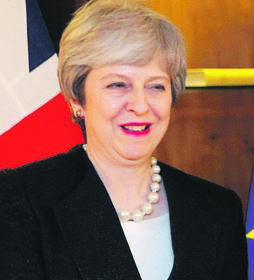
Anti-immigration movements in Europe are surging, the UK wants its national borders back, Trump’s obsession with the Mexican border wall is a lot less laughable, in Brazil President Jair Bolsonaro is forging forward to take back land from indigenous people and in South Africa the land question casts long shadows on racial cohesion.
What we have is an emerging social order of a global scope, characterised by increasing debate on the meaning of culture, liberty and reason. These three foundations of modern society emerged during what is known as the Age of Enlightenment, which started in the 1680s, first in Europe and then in North America.
The Age of Enlightenment – which replaced more than 10 centuries of religion, mysticism and superstition – treated rational thought as the basis of understanding and shaping human existence.
Immanuel Kant, one of the most influential philosophers of Western thought, defined enlightenment as “the liberation of man from his self-caused state of minority”. This state of self-caused minority, according to Kant, originated from three areas.
The first was laziness: Most human beings find it easier to follow intellectuals in society. The second was cowardice: Or the lack of courage to use reason. This cowardice led to a preference not to use reason, in fear of generating new ideas which might disrupt the prevailing comforts of the society. Third was the tendency of a small number of elites to monopolise knowledge: Condemning the majority of the population to intellectual laziness and cowardice. How does all this relate to 21st-century society?
With the rise of modern nationalisms, the fear of new cultures and new ideas are the main fuel of anti-immigration movements.
The resistance of immigrants in Europe and the US, xenophobic and racial explosions in South Africa and ethnic tension in most parts of Africa point to the fear of new cultures which Kant wrote about. This fear is partly linked to the lack of courage to use reason. Thus dubious reasons for hostility and intolerance prevail in modern society. By the same token, most citizens rely on what political elites tell them: That immigrants are taking over national economies or that the suppression of whites or blacks (depending on context) could yield future peace and happiness. These are major deviations from rational thought.
Kant is acutely relevant to the emerging world social order of diminishing use of reason, shrinking liberties and racial intolerance disguised as cultural differences. It is unlikely that South Africa’s future will be insulated from the emerging social order for the following reasons.
First, the country’s future is mainly shaped by political elites, who govern through agendas and personal interests. Poor living conditions of the poor and working classes are forced upon them by inaction or self-interest of these elites. Here I use self-interest in broad terms, from corrupt public servants to unprofessional or lazy bureaucrats whose conduct has a significant affect on ordinary citizens.
Second, South Africa is yet to situate rational thought at the core of public debates. From political debates to public commentary on social issues, intellectual engagement is largely missing and where it is present, it is relatively shallow. If the same energy demonstrated in street protests is matched with proportional public intellectual engagement, the pace towards a more socially and economically egalitarian society might just be a little faster.
Third, and perhaps most critical for South Africa, is the racial debate and its proxy manifestations. The conversation around race in South Africa takes a sentimental outlook at the expense of rationality. It is refreshing to witness public acts of kindness across the racial divide, but these should not be paraded as the true meaning of a multiracial society. Generalised stereotypes from both sides of the aisle, along with pipe dream, race-based propaganda largely shape national conversation around race. What is more, racial debates have been left for the youth to debate on social media, for politicians on political platforms and preserved as a national outcry in response to a specific racial discriminatory incident. Typically in these cases, insults and counter-racial slurs become the dominant ways of discussing race.
In sum, we need to seek answers to more complex questions such as the following: Is social cohesion possible, practical or even necessary in a multiracial society and should we not pursue cultural tolerance instead? What does it mean to be a South African? Do we even need national (and nationalised) identities in a globalising world?
Can we modify a capitalist system to address social problems or what other alternatives exist to solve modern social evils? In what ways can we overcome the tendencies to defer intellectual debates to elites? Should we talk of the goal of a nonracial society and what this actually means?
In the end, if robust, widespread and sustained rational thought does not urgently emerge in South Africa, then we are inevitably tethered to the rising world social order devoid of liberty, cultural tolerance and rational thought. That dangerous world is the most probable future.
Musyoka is a senior researcher at the University of Pretoria’s Centre for the Advancement of Scholarship
TALK TO US
Without rationality social order will collapse, leading to a dangerous future. Do you agree?
SMS us on 35697 using the keyword RATIONAL and tell us what you think. Please include your name and province. SMSes cost R1.50. By participating, you agree to receive occasional marketing material




 Publications
Publications
 Partners
Partners









